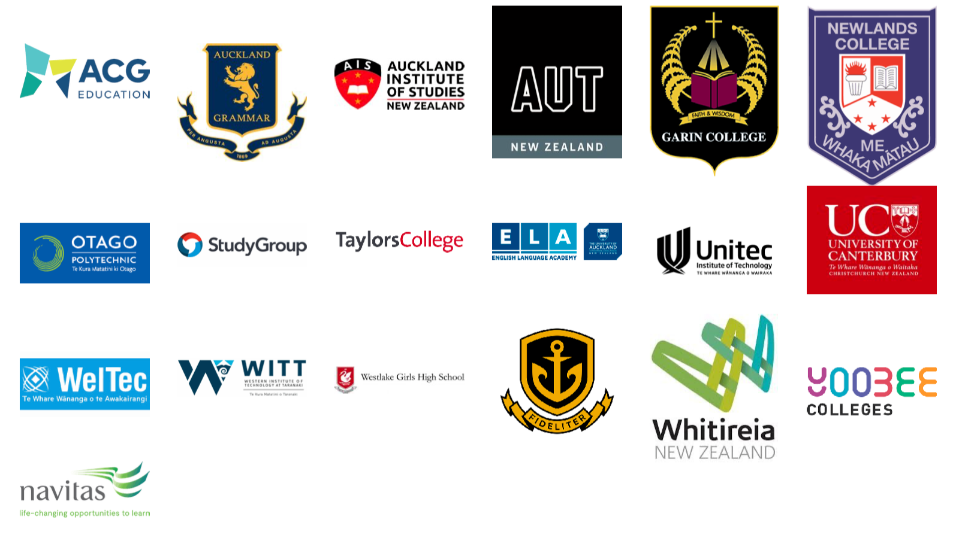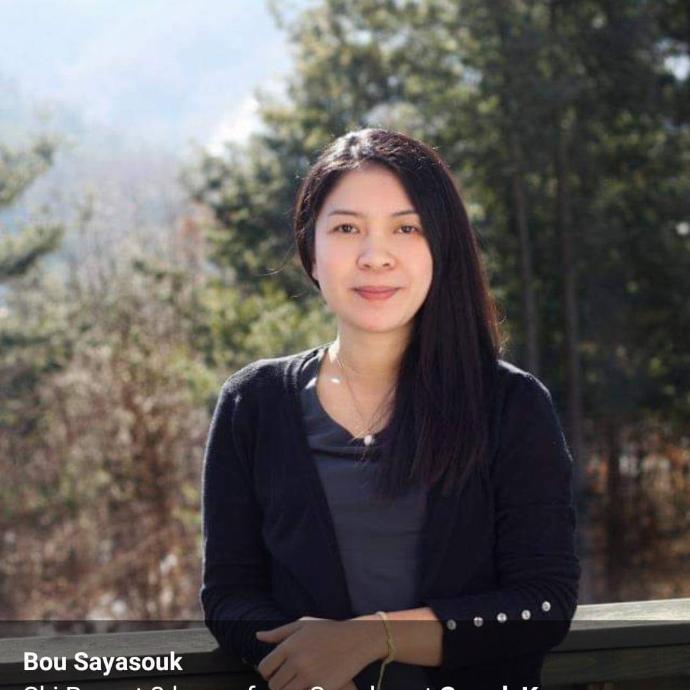Why study in New Zealand?
World-class Education
New Zealand universities are attractive to international students for their high-quality education programs and support.
Indeed, New Zealand prides itself on a world-class education system that is modern and responsive. The country welcomes over 117,000
students on average every year with a wide range of courses and internationally recognised institutions to choose from, New Zealand’s popularity with foreign students is increasing.
The University of Auckland was ranked in the top 100 in the QS Top universities ranking
for 2020, and all of them feature in the Times Higher Education World University Ranking
. With only 4.5 million inhabitants, these rankings are an incredible testament to the high education system and standards implemented in New Zealand universities.
Furthermore, NZ qualifications are recognised worldwide, ensuring students can secure a successful career anywhere.
Its higher education providers include a wide range of universities, Private Training Establishment (PTEs), Institutes of Technology and Polytechnics (ITPs), wānanga, and workplace training.
Future Prospects
NZ universities are internationally connected and recognised for preparing students for the future of their dreams.
Other factors
Most NZ student visas allow for 20 hours of part-time work per week during regular semesters and full-time work during holidays. Part-time work could include waiter, bartender, kitchen hand, retail sales assistant, supermarket assistant, seasonal worker, or call center worker.
Another appealing factor for international students is the fact that the country is consistently ranked as one of the safest countries on earth on the Global Peace Index.
Last but not least, NZ is rich with nature’s most stunning landscapes, from snow-capped mountains and untamed wilderness to pristine beaches. Its rich culture and laid-back local charm creates an idyllic lifestyle of wonder. Its multiculturalism and international connections make it a great place to live, study, and work while building knowledge and skills for your future.
Education Systems in New Zealand
The NZ education system can be divided into distinct levels:
- Early childhood education:
Around 96% of children attend between birth and school entry age. These programs support children’s development, help them build the skills they’ll need, and ensure the transition to primary school.
- Primary and secondary education:
Children typically attend primary school from 5 to 12 and secondary school from 12 to 18.
- Tertiary education:
NZ’s higher education system offers undergraduate courses, including bachelor’s and postgraduate studies, including master’s and doctoral degrees.
As an international student, you can apply for pathway programmes in
order to improve your English skills while accessing foundation courses to consolidate your knowledge prior to enrolling in university. This will ensure you acquire both the English and academic qualifications you need to get access to better universities.
Undergraduates courses
Undergraduate courses include bachelor's degrees, certificates, and diplomas:
Certificates and diplomas:
Certificates are usually completed full time or part time over a period of up to two years while diplomas can take up to three years to complete. Both qualifications are usually a great option to gain a basic knowledge and understanding of a specific trade and can lead to a bachelor’s degree.
Bachelor’s degrees:
Depending on the universities, you’ll be able to tailor your curriculum and adapt it as you discover new options and subjects. Bachelor’s degrees typically run from mm three to four years.
Note that if you completed most of your education in another country, you must discuss the admission requirements with your educational institution as you’ll most likely be required to provide specific test results.
Postgraduate studies
If you are ready to take the next step in your education and career, a postgraduate course may be right for you. There are four main types of masters programs in NZ, including:
- Traditional Masters Programmes build on a related undergraduate program. These courses are taught by specialist academics with deep expertise.
- Change of direction Masters programs allows you to make a switch between careers or from academic to professional life.
- Graduate entry-level professional qualifications , which teach advanced vocational skills and qualify you to enter regulated professions (i.e., teaching). If you are considering enrolling, first check that your qualifications will be recognised in the country you ultimately plan to work in.
- Professional development qualifications , designed for professionals with relevant work experience. They provide additional skills and training to enhance or modify an existing career path.
- Masters by Research require an extended independent dissertation under supervision.
- Doctor of Philosophy (Ph.D.)
Note that The University of Auckland ranks in the top 50 of the QS World University Rankings by Subject 2020 for archaeology, education, nursing, geography, and performing arts.
Tuition Fees
Tuition fees will greatly vary depending on your location, the institution you’re studying at, the study level, the program, and its duration. A master's program for international students in NZ generally costs NZ$26,000 - 37,000 pa. However, most PhDs are around
NZ$6,500-$9,000 pa.
Students life in New Zealand
NZ includes the South Island and the North Island, with a total population of
4,829,342.
New Zealanders tend to describe themselves as friendly, yet reserved, open yet respectful. This means don’t ask intrusive questions or overshare your personal drama.
Accommodation
Depending on your location, budget, and preferences, you may choose to find private or shared accommodation or live on campus. If you decide to live on campus, you will save travel expenses. There are shared facilities and communal areas, which means opportunities to make new friends.
- Private apartments or houses
While choosing to live in a flat or a house is more costly than living on campus, this option allows for flexibility as you’ll be able to choose the location you live in. However, choosing to live by yourself might make meeting new people more challenging.
The average cost of furnished and unfurnished apartment rentals is $180.00
per week, although the price varies between regions. Note the price is in NZ (NZD).
- Shared flats
Some websites
allow students to research shared houses and shared flat options. Less expensive than renting a private flat, this option will also allow you to meet other people (may they be students or not).
Transport
New Zealand is known for its robust public transport, including buses and trains, along with private options such as Uber and taxis. The cheapest of these options are buses and trains, which run regularly.
Social Life
New Zealand culture is relaxed, open-minded, and tolerant. They value positivity, kindness, fairness, safety, and friendship. They enjoy working hard, then unwinding with family and friends in nature, watching sports, and engaging with art and culture.
New Zealanders are known as ‘kiwis’ after their native kiwi bird, and can sometimes come across as shy or reserved. English is the main language spoken, though the Māori language is also very important to their culture.
They tend to speak quickly, with a strong accent and Māori slang. It is a good idea to learn some common words and phrases.
It is also important to learn the basics of how to interact with the Maori Culture and Customs
prior to arriving in NZ. You can learn more about some popular words and customs at 100% Pure New Zealand.
If you are respectful, courteous, and polite in your interactions with friendly kiwis, you will find them to be very welcoming.
The New Zealand student visa
Cost of Visa
The cost of visas varies depending on which one you decide to apply for. You can find detailed information on the
New Zealand Immigration
website.
Healthcare
As part of your student visa application, you will need to purchase international student health insurance for your time in NZ prior to your arrival. You can compare policies at
Student Health NZ
.
Work opportunities
Part-time Jobs
If you’re a tertiary student, depending on your visa conditions, you’ll be able to work up to 20 hours a week
during regular semesters and full-time during breaks or vacations
. Note that if you’re studying a master’s degree or a PhD. in a government-approved institution, there will be no restrictions when it comes to the number of hours you can work per week.
To find a part-time job while studying, make sure you network with older students, check your university’s career hub along with employment websites.
Some of the most popular student jobs include:
- Retail assistant
- Supermarket assistant
- Waiter/Waitress
- Kitchen hand
- Bartender
- Call center worker
Working opportunities
There are two types of post-study visa you can apply for which will let you stay and work in the country for up to three years:
-
Post-Study Work Visa Open
- Post-Study Work Visa Employer - Assisted
What our New Zealand students say
Your Dynamic Snippet will be displayed here...
This message is displayed because you did not provided both a filter and a template to use.
Meet the team
Our partners




